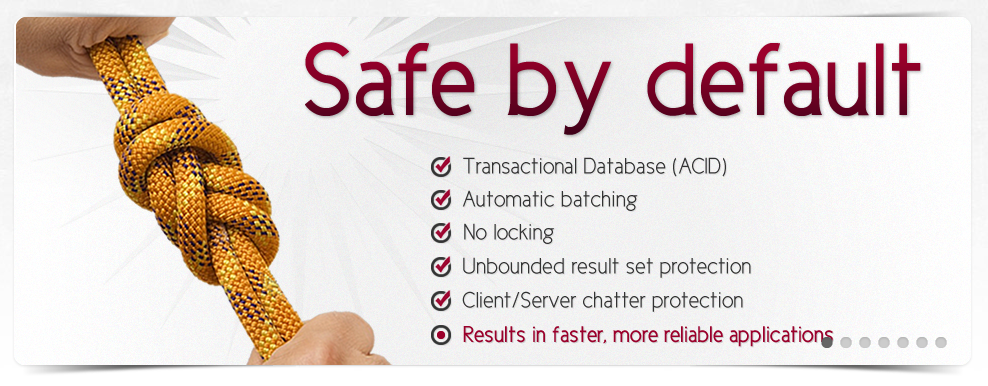When "safe by default", isn't.
We use RavenDB in Octopus, and one of the features Raven promotes is the idea of Safe by Default, which actually caused us a big, unsafe problem.

The feature in question is "Unbounded result set protection". In short, it looks like this. Say you have 10,000,000 documents of type Foo, and you do this:
session.Query<Foo>().ToList()
The most you'll ever get back is 128 records (embedded mode), or 1024 records for an externally hosted server.
In fact, even if you do this:
session.Query<Foo>().Take(1000000).ToList()
In embedded mode you'll still just get 128 records.
This "feature" has hit us plenty of times in Octopus in the past - we didn't expect people to have a lot of projects, so when someone added their 129th project, you can guess what the bug report was. But overall, not too bad, and a good bug to have if you charge for support (sadly, we don't :-)).
I always considered it an annoyance, an opinionated design that goes a little too far, until today.
In Octopus we have a built-in NuGet server, and users can push NuGet packages to it. To decide whether to delete a package, we need to work out which packages are used by a given release - if the package isn't used, it is safe for deletion.
Our query was:
var releasedVersions = await session.Query<ReleasedPackageVersionsIndex.Result, ReleasedPackageVersionsIndex>()
.ProjectFromIndexFieldsInto<ReleasedPackageVersionsIndex.Result>()
.WaitForNonStaleResults()
.ToListAsync();
Today I logged in to our demo server to find the packages had all been deleted; you can spot the bug.
We've been working with Raven for many years now and even still, bugs like this creep in - it's just too easy to call ToList() without considering what might happen. Perhaps it's our own fault, or perhaps this 'safe by default' opinion goes just a little too far. In this case, it would be safer to run out of memory or crash than to delete files.
